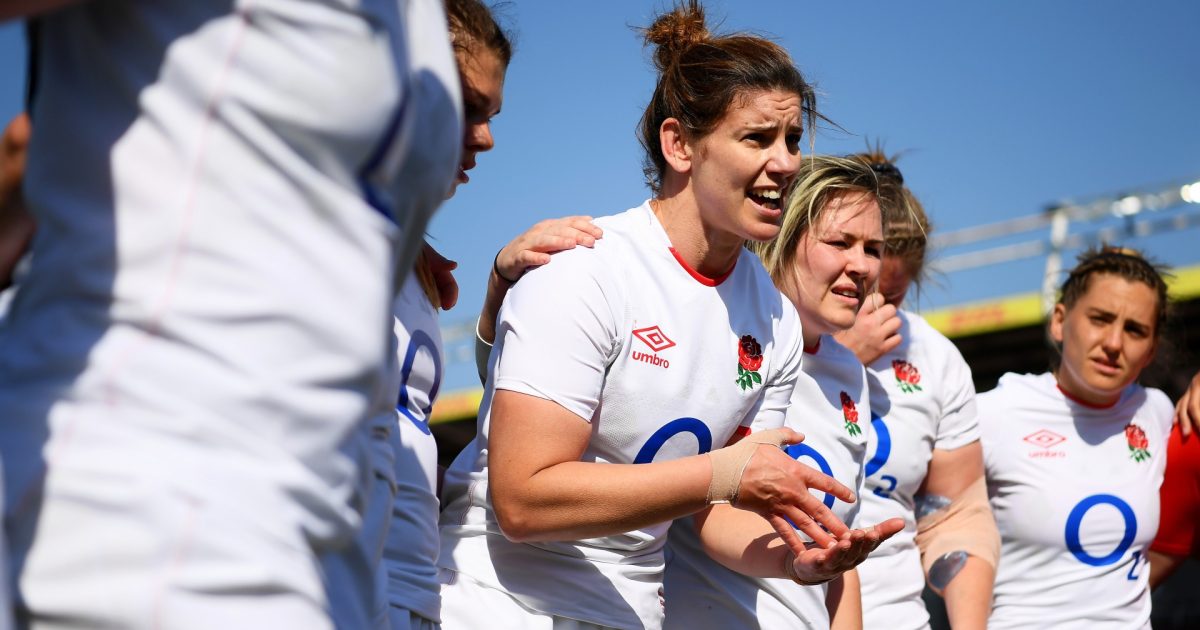All you need to know for the TikTok Women's Six Nations round one

The TikTok Women’s Six Nations kicks off this Saturday with a new title sponsor and comprehensive broadcast deals that will have a massive increase in coverage. Here is everything you need to know ahead of round one:
FIXTURES
Saturday
Scotland vs England (12pm, The Dam Health Stadium) – Live on BBC Two and BBC iPlayer
Ireland vs Wales (4.45pm, RDS Arena) – Live on BBC Two Northern Ireland and BBC iPlayer
Sunday
France vs Italy (3pm, Stade des Alpes) Live on BBC iPlayer
THE TEAMS
England
With ten Grand Slams to their name since the championship’s 2002 inception, the Red Roses will be looking for glory again this year. Anything less than another Grand Slam would be a disappointment for Simon Middleton’s side – and rightly so given that the Red Roses are the only fully professional outfit competing. Convincing wins over the Black Ferns in the autumn should give them confidence as should the return of Emily Scarratt, the 2019 world player of the year.
Captain: Sarah Hunter.
Players to watch: Sarah Bern, Scarratt, Abby Dow.
Last year: Champions.
World ranking: 1st.
Professional status: fully contracted professionals.
France
The French ran England close in the final of the altered-format 2021 championship and will be looking to right the wrongs of that 10-6 loss. A team who are physical in the extreme, France are the only contenders who could knock England off their pedestal after finishing in second place for the last two years and the round five clash in Bayonne is poised to be a Grand Slam occasion. If you tune in to one game in this tournament, that will be the one to watch.
Captain: Gaelle Hermet.
Players to watch: Hermet, Jessy Tremouliere.
Last year: 2nd.
World ranking: 3rd.
Professional status: 35 players have semi-professional contracts.
Ireland
They have been surrounded by controversy following their failure to qualify for the upcoming World Cup in New Zealand, but this Six Nations will give new coach Greg McWilliams the chance to experiment and blood new players with nine rookies named in the wider squad. Lock Nichola Fryday takes over as captain from the retired Ciara Griffin after a good run of form in the Premier 15s for Exeter. A home game against Wales would give the Irish a solid chance to make their mark early on.
Captain: Nichola Fryday.
Players to watch: Sam Monaghan, Eimear Considine.
Last year: 3rd.
World ranking: 7th.
Professional status: Per diem – players will receive a small allowance to cover the costs of international duties.
Italy
The Italians enter the championship with a respectable World Rugby eighth-place ranking with the potential to climb as high as fifth by the end of the tournament. Captain Manuela Furlan’s experience will be vital. The 33-year-old full-back has won 81 caps and holds the Italian Six Nations try-scoring record to boot. They face a tough start against France but will look to repeat their 2019 Six Nations success when they not only beat Les Bleus 31-12 but snagged a second-place finish.
Captain: Furlan.
Players to watch: Furlan, Beatrice Rigoni.
Last year: 4th
World ranking: 8th
Professional status: Expenses only.
Scotland
Fresh off the back of a 59-3 win over Columbia in February to secure their World Cup qualification, Scotland will be looking to make a lasting impact in this Six Nations but they face a tough opener against England which could set the tone for their performance through the rest of the tournament and into the world finals. Many Scottish players have enjoyed stellar performances over the border in the Premier 15s this season (including back row captain Rachel Malcolm), and a little individual brilliance could go a long way in turning around last year’s fifth-place.
Captain: Malcolm.
Players to watch: Helen Nelson, Jade Konkel.
Last year: 5th.
World ranking: 9th.
Professional status: Ten players are on full-time professional contracts.
Wales
The Welsh will have high hopes despite finishing in last place in the 2021 championship and Ioan Cunningham’s squad will be a different beast this year. Twelve of the players are now on full-time professional contracts, which should improve the quality of the team significantly given many of them will no longer have to juggle work and rugby. The Welsh squad pack a punch with speedster backs named in the starting lineup (watch out for Jasmine Joyce leaving defenders clutching at air), and it will be interesting to see how the budding professionals match up against Ireland in round one.
Captain: Siwan Lillicrap.
Players to watch: Joyce, Elinor Snowsill.
Last year: 6th.
World ranking: 11th.
Professional status: Twelve players are on full-time professional contracts with eleven more on semi-professional retainers.






























































